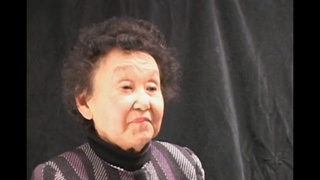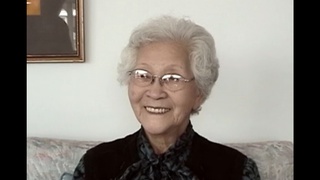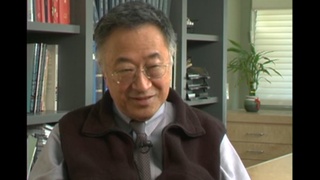Interviews
Father's Influence
As a child, I was kind of frustrated that our daddy was away so much from us. He was block manager in both camps that we were in. Arkansas, Rohwer, Arkansas, was the first camp we were taken to. And from there, after the "loyalty questionnaire" came down, we were transferred to Tule Lake in northern California.
But in both camps, my father was always involved in what I thought was other people's business. In Rohwer, when it rained, it turned into a swamp. People had to make that three times a day trek to the mess hall. Old people, elderly people, had difficulty making that trek. Their feet would sink into the muck, and pulling their feet out of the muck became extremely laborious. Mothers with children had tremendous challenges getting their flock to the mess hall. And so the building of a board walk became a necessity. And I remember my father organizing people to build that. He was always in meetings or projects for the community.
As I grew up, I came to realize. After camp, my parents were busy getting back on our feet. But never the less, he was volunteering for community projects, community organizations on weekends. So that inculcated in us, I think, a sense of volunteerism. Little Tokyo worked on volunteerism.
Date: February 3, 2015
Location: California, US
Interviewer: John Esaki, Janice Tanaka
Contributed by: Watase Media Arts Center, Japanese American National Museum













